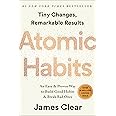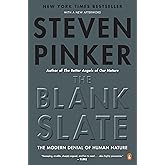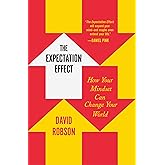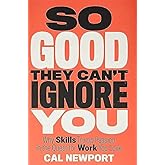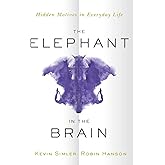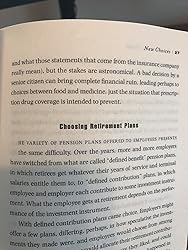
Enjoy fast, free delivery, exclusive deals, and award-winning movies & TV shows with Prime
Try Prime
and start saving today with fast, free delivery
Amazon Prime includes:
Fast, FREE Delivery is available to Prime members. To join, select "Try Amazon Prime and start saving today with Fast, FREE Delivery" below the Add to Cart button.
Amazon Prime members enjoy:- Cardmembers earn 5% Back at Amazon.com with a Prime Credit Card.
- Unlimited Free Two-Day Delivery
- Streaming of thousands of movies and TV shows with limited ads on Prime Video.
- A Kindle book to borrow for free each month - with no due dates
- Listen to over 2 million songs and hundreds of playlists
- Unlimited photo storage with anywhere access
Important: Your credit card will NOT be charged when you start your free trial or if you cancel during the trial period. If you're happy with Amazon Prime, do nothing. At the end of the free trial, your membership will automatically upgrade to a monthly membership.
Buy new:
-37% $11.99$11.99
Ships from: Amazon.com Sold by: Amazon.com
Save with Used - Good
$11.38$11.38
Ships from: Amazon Sold by: saveherenow

Download the free Kindle app and start reading Kindle books instantly on your smartphone, tablet, or computer - no Kindle device required.
Read instantly on your browser with Kindle for Web.
Using your mobile phone camera - scan the code below and download the Kindle app.

OK
 Audible sample Sample
Audible sample Sample 


The Paradox of Choice: Why More Is Less, Revised Edition Paperback – Illustrated, May 17, 2016
Purchase options and add-ons
In the spirit of Alvin Toffler’s Future Shock, a social critique of our obsession with choice, and how it contributes to anxiety, dissatisfaction and regret. This paperback includes a new preface from the author.
Whether we're buying a pair of jeans, ordering a cup of coffee, selecting a long-distance carrier, applying to college, choosing a doctor, or setting up a 401(k), everyday decisions—both big and small—have become increasingly complex due to the overwhelming abundance of choice with which we are presented.
As Americans, we assume that more choice means better options and greater satisfaction. But beware of excessive choice: choice overload can make you question the decisions you make before you even make them, it can set you up for unrealistically high expectations, and it can make you blame yourself for any and all failures. In the long run, this can lead to decision-making paralysis, anxiety, and perpetual stress. And, in a culture that tells us that there is no excuse for falling short of perfection when your options are limitless, too much choice can lead to clinical depression.
In The Paradox of Choice, Barry Schwartz explains at what point choice—the hallmark of individual freedom and self-determination that we so cherish—becomes detrimental to our psychological and emotional well-being. In accessible, engaging, and anecdotal prose, Schwartz shows how the dramatic explosion in choice—from the mundane to the profound challenges of balancing career, family, and individual needs—has paradoxically become a problem instead of a solution. Schwartz also shows how our obsession with choice encourages us to seek that which makes us feel worse.
By synthesizing current research in the social sciences, Schwartz makes the counter intuitive case that eliminating choices can greatly reduce the stress, anxiety, and busyness of our lives. He offers eleven practical steps on how to limit choices to a manageable number, have the discipline to focus on those that are important and ignore the rest, and ultimately derive greater satisfaction from the choices you have to make.
- Print length304 pages
- LanguageEnglish
- PublisherEcco
- Publication dateMay 17, 2016
- Dimensions5.31 x 0.68 x 8 inches
- ISBN-100062449923
- ISBN-13978-0062449924
The Amazon Book Review
Book recommendations, author interviews, editors' picks, and more. Read it now.
Frequently bought together
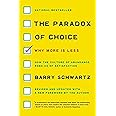
Similar items that may deliver to you quickly
 So it seems that neither our predictions about how we will feel after an experience nor our memories of how we did feel during the experience are very accurate reflections of how we actually do feel while the experience is occurring. And yet it is memories of the past and expectations for the future that govern our choices.Highlighted by 2,422 Kindle readers
So it seems that neither our predictions about how we will feel after an experience nor our memories of how we did feel during the experience are very accurate reflections of how we actually do feel while the experience is occurring. And yet it is memories of the past and expectations for the future that govern our choices.Highlighted by 2,422 Kindle readers Happy people have the ability to distract themselves and move on, whereas unhappy people get stuck ruminating and make themselves more and more miserable.Highlighted by 2,299 Kindle readers
Happy people have the ability to distract themselves and move on, whereas unhappy people get stuck ruminating and make themselves more and more miserable.Highlighted by 2,299 Kindle readers Nobel Prize–winning psychologist Daniel Kahneman and his colleagues have shown that what we remember about the pleasurable quality of our past experiences is almost entirely determined by two things: how the experiences felt when they were at their peak (best or worst), and how they felt when they ended.Highlighted by 2,222 Kindle readers
Nobel Prize–winning psychologist Daniel Kahneman and his colleagues have shown that what we remember about the pleasurable quality of our past experiences is almost entirely determined by two things: how the experiences felt when they were at their peak (best or worst), and how they felt when they ended.Highlighted by 2,222 Kindle readers
Editorial Reviews
Review
“Brilliant.... The case Schwartz makes... is compelling, the implications disturbing.... An insightful book.” — Christian Science Monitor
“An insightful study that winningly argues its subtitle.” — Philadelphia Inquirer
“Schwartz lays out a convincing argument.... [He] is a crisp, engaging writer with an excellent sense of pace.” — Austin American-Statesman
“Schwartz offers helpful suggestions of how we can manage our world of overwhelming choices.” — St. Petersburg Times
“Wonderfully readable.” — Washington Post
“Schwartz has plenty of insightful things to say about the perils of everyday life.” — Booklist
“With its clever analysis, buttressed by sage New Yorker cartoons, The Paradox of Choice is persuasive.” — BusinessWeek
From the Back Cover
“Absorbing, witty, and persuasive.”—BusinessWeek Top 10 Business Books of 2004
“Brilliant. . . . The case Schwartz makes for a correlation between our emotional state and what he calls the ‘tyranny of choice’ is compelling, the implications disturbing. . . . An insightful book.”—Christian Science Monitor
“A revolutionary and beautifully reasoned book about the promiscuous amount of choice that renders the consumer helpless. A must-read.”—Martin Seligman, author of Authentic Happiness
Whether we’re buying a pair of jeans, ordering coffee, selecting a wireless carrier, applying to college, choosing a doctor, or setting up a 401(k), everyday decisions—both big and small—have become increasingly complex due to the over-whelming abundance of choice. For Americans, choice is the hallmark of individual freedom and self-determination. But having too much choice can actually be detrimental: choice overload can make you question your decisions before you make them, set up unrealistically high expectations, and lead to self-blame for any failure. The result is decision-making paralysis, anxiety, and perpetual stress, and even clinical depression.
In The Paradox of Choice, Barry Schwartz shows how the dramatic explosion in choice—from the mundane to the profound challenges of balancing career, family, and individual needs—has led us to seek that which makes us feel worse. Synthesizing current research, Schwartz makes the counterintuitive case that reducing choices can greatly reduce stress, anxiety, and the frenzy of daily life, and offers eleven practical steps to help you limit choices to a manageable number, focus on the important ones, and ultimately derive greater satisfaction from the choices you have to make.
About the Author
Barry Schwartz is the Dorwin Cartwright Professor of Social Theory and Social Action at Swarthmore College. He is the author of several books, including Practical Wisdom: The Right Way to Do the Right Thing, with Kenneth Sharpe, and Why We Work. His articles have appeared in many of the leading journals in his field, including American Psychologist.
Product details
- Publisher : Ecco; Revised edition (May 17, 2016)
- Language : English
- Paperback : 304 pages
- ISBN-10 : 0062449923
- ISBN-13 : 978-0062449924
- Item Weight : 8 ounces
- Dimensions : 5.31 x 0.68 x 8 inches
- Best Sellers Rank: #28,772 in Books (See Top 100 in Books)
- Customer Reviews:
About the author

Barry Schwartz is the Dorwin Cartwright Professor of Social Theory and Social Action in the psychology department at Swarthmore College, Swarthmore, Pennsylvania, where he has taught for thirty years. He is the author of several leading textbooks on the psychology of learning and memory, as well as a penetrating look at contemporary life, The Battle for Human Nature: Science, Morality, and Modern Life. Dr. Schwartz is married and has two children.
Photo by Bill Holsinger-Robinson (Flickr: IMG_2638) [CC BY 2.0 (http://creativecommons.org/licenses/by/2.0)], via Wikimedia Commons.
Customer reviews
Customer Reviews, including Product Star Ratings help customers to learn more about the product and decide whether it is the right product for them.
To calculate the overall star rating and percentage breakdown by star, we don’t use a simple average. Instead, our system considers things like how recent a review is and if the reviewer bought the item on Amazon. It also analyzed reviews to verify trustworthiness.
Learn more how customers reviews work on AmazonReviews with images
-
Top reviews
Top reviews from the United States
There was a problem filtering reviews right now. Please try again later.
The author contends that it's crucial for us to feel like we're in control, but in the face of so many options, is the process of selection back-firing on us?
Schwartz contends that it is. In accessible, engaging, and anecdotal prose, the author shows how the dramatic explosion of choice--from the mundane to the profound--has paradoxically become a problem instead of a solution. He tells the story of how he used to be able to go into a store and just get a pair of jeans. Being one to wear his jeans until they fall apart, he finally went to the store to get a new pair. A salesperson walked up to him and asked him if she could help. "I want a pair of jeans--32-38", he said. She proceeds to ask him if he wants them slim fit, easy fit, relaxed fit, baggy, or extra baggy? Stonewashed, acid-washed, or distressed? Buttton-fly or zipper fly? Faded or regular?
He was stunned. He sputtered that he just wanted regular jeans...you know, the kind that used to be the only kind? Schwartz then begins a mission to find out the range of choice for Americans. He goes on to list some pretty eye-opening statistics. For example, in his local supermarket, he found 285 varieties of cookies. Just the chocolate-chip cookies alone had 21 options! At his local electronics store, he counted 85 different telephones, not including cell phones. Even shopping for colleges has become an intellectual shopping mall.
And speaking of malls, did you know that Americans go to shopping centers about once a week, more often than they go to houses of worship? American now has more shopping centers than high schools. However, when asked to rank the pleasure they get from various activities, grocery shopping ranks next to last, and other shopping fifth from the bottom.
People are shopping more, but enjoying it less. But why? If they do enjoy it less, why do they keep doing it? This is the crux of the book, where Schwartz cites fascinating studies including Why Choice Is Demotivating. He also examines why it is that the excitement of purchasing new items seems to wear off so fast, and why we sometimes actually feel badly about our choices. For one, humans are adaptive. "Familiarity breeds contempt", as the old adage goes. But it's also the fact that we second guess ourselves after a purchase, mulling what we could have chosen, as well as asking ourselves if we really chose "the best".
Choosing "the best" is a trait of maximizers. Schwartz says that maximizers tend to be less happy than satisficers. Satisficers are those who choose with the mindset of "good enough". But because America is a culture where many seek "the best" and compare their choices and lifestyle with their neighbors and media standards, most of us are maximizers.
What are some of the qualities of a maximizer?
1. Maximizers engage in more product comparisons than satisficers, both before and after they make purchasing decisions.
2. Maximizers take longer than satisficers to decide on a purchase.
3. Maximizers spend more time than satisficers comparing their purchasing decisions to the decisions of others.
4. Maximizers are more likely to experience regret after a purchase.
5. Maximizers are more likely to spend time thinking about hypothetical alternatives to the purchases they've made.
6. Maximizers generally feel less positive about their purchasing decisions.
7. Maximizers savor positive events less than satisficers and do not cope as well (by their own admission) with negative events.
8. After something bad happens to them, maximizers' sense of well-being takes longer to recover.
9. Maximizers tend to brood or ruminate more than satisficers.
Is it any wonder that we buy more, but enjoy less? What drew me to this book was because I knew that I was the type of person that obsessed over purchases, taking forever to select an item. I used to be so indecisive at a restaurant, taking 20 minutes to figure out what I wanted! What am I in the mood for? How will I feel when I eat it? What's the tastiest thing I could order? I'm much better than I was, but still... I also noticed the trend to second guess many of my purchasing decisions and wondering if I could "do better".
So when I read about this book in Parade magazine, I ordered it from Amazon.com. The great thing about this book is that Schwartz synthesizes current research, and shows how eliminating choices can greatly reduce the stress, anxiety, and busyness of our lives. He even offers eleven practical steps on how to limit choices to a manageable number, have the discipline to focus on those that are important and ignore the rest, and ultimately derive greater satisfaction from the choices we have to make.
Oh, and I picked my new dryer rather easily. I knew I wanted an interior light, a manual dial, large capacity, and a signal to let me know when the clothes were done. However, my husband kept standing there with a "deer in the headlights" look. (And finally agreed with my choice.)
Do you think locking him in our bathroom with this book might help? Not a lotta choices in there, after all...
Four and Half Stars- Must Read for anyone interested in "decision making"
A fantastic book on why more is less (or less is more). It is a fantastic essay on how the culture of abundance robs us of satisfaction in life, and more importantly bring in depression. It shares enough case studies and examples of why more is less, and how to increase satisfaction life.
Key Idea: Giving people too many choices tends to lessen their satisfaction.
“Maximizers” are people who, given a choice, will exhaustively search all the options, seeking all possible information, in order to make the best possible choice. This behavior generally consumes a lot of time, and often leads to nagging doubts, perhaps where no one clear winner emerged.
“Satisficers” are those who settle for a choice that is “good enough” for them These people are generally happier with their choice, and spend less time choosing, leaving them free to enjoy other things.
Counterintuitive wisdom
1. We are better of if we embraced voluntary constrains of choice on our freedom of choice, instead of rebelling against in thme
2. We are better off when we choose good enough instead of seeking the best
3. Lower your expectations about the results of your decisions
4. We are better off if our decisions are irreverseable
5. We are better off if we paid less attention to what others do around us
Summary of the book by Chapter:
Lets go shopping: Every area of our life from the super market to the education market offers way too much choice.
New Choice: Filtering our extraneous information is the key function of consciousnesses.
Deciding and Choosing: Figure your goals out, rank them, evaluate options and their likelyhood to meet goals, pick winning option .
Growth of options and opportunities means decisions require more effort, mistakes are more likely and psychological ocnsequence of mistakes is more severe.
When Only The Best Will Do: When you seek and only the best will do you are a MAXIMIZER. When you seek the good enough and not worry about consequences you are a SATISFIER.
Maximizers tend to: make more product comparisons, take longer to decide, compare their decisions to others, experience more regret that others, feel less positive about their decisions.
Choice & happiness: Every choice we make is a testament to our autonomy. The choice of when to be a chooser may be the most important choice we have to make. The more control people have, the less helpless they feel, the less depressed they will be.
Time spent with dealing with choice is time spent away from being in life.
Some constrain can afford liberty, while freedom will bring enslavement, it is wise to choose the the constrains.
Missed opportunities: Examine opportunity costs - more the choices, we diminish our subjective experience of benefits, thus we are worse off.
When people have too many options and trade offs, they avoid making decisions options we consider usually suffer from companions with other options
One reason why maximizers are less happy, less satisfied with their lives, and more depressed than satisfiers is precisely because the taint of tradeoffs and opportunity costs washes out much that hshould be satisfying about the decisions they make.
The Problem of Regret: Two factors affect regret a) personal responsibility for the result b) how easily we can imagine the counter factual better alternative.
Regret looms more for the maximizer than the satisfier.
Everything suffers from Comparisons: Curse fof high expectations, curse of social comparisons due to race for status,
Maximizers are more concerned with social comparisons than satisfiers. Increasing available options seems to usually reduce satisfaction.
Whose Fault is it?:Helplessness induced by failure or lack of control causes depression. Depression more common when only the best will do.
What to do about Choice?:
1)Choose when to choose.- think of cost associated with decisions.
2) Be a chooser not a picker -
3)Satisfy more, maximize less
4)Think about opportunity costs of opportunity costs - dont be swayed by new and improved
5) Make decisions non reversible
6) Practice an attitude of gratitude
7)Regret less
8) Anticipate adaptation - focus on how things are as opposed to as they were
9) Control expectations
10) Avoid social comparisons
11)Learn to love constrains
This book is worth the read, to hammer home the point of embracing a satisfaction based life, and how to learn to love constrains. BUY THIS BOOK, which was voted as a TOP 10 book for the year by Business Week to understand why" less is more, and how to increase the satisfaction in your life."
Mahipal Lunia
www.TheRenaissancePath.com
Top reviews from other countries
Really related to North America lifestyle.
Suggest it specifically to those who immigrate to Canada or USA. This a must be read...the sooner in your life the better results you will get.
How helpful is it to have many choices?
- Page 3: Although some choice is good doesn’t necessarily mean that more choice is better. Increasing the available options may decrease your satisfaction with what you choose.
- Page 25: Many people have difficulty calculating the time / effort / energy it takes to search for, evaluate and decide between alternatives as a cost. This illustrates a paradox of the time we live in: A majority of people want more control over the details of their lives, but a majority of people also want to simplify their lives.
- Page 43: One problem of having choices is that, today, we face a demand to make choices that is unparalleled in human history. The number of choices that every person needs to make has increased quite a lot – even for children. And with the internet, powerful mobile electronic devices, global communication and trade, choices seem to increase.
- Page 103: There are profound psychological benefits of choice, as choice enables people to be actively and effectively engaged in the world.
How do we manage excessive choice:
- Page 47: Good decisions involve these steps: 1. Figure out your goal or goals. 2. Evaluate the importance of each goal. 3. Array the options. 4. Evaluate how likely each of the options is to meet your goals. 5. Pick the winning option. 6. Later, use the consequences of your choice to modify your goals, the importance you assign them, and the way you evaluate future possibilities.
- Page 187: Understand that high expectations can be counterproductive. To improve the quality of our lives, it pays off to work on controlling our expectations. The blessing of modest expectations is that they leave room for many experiences to be a pleasant surprise. The challenge is to find a way to keep expectations modest - even as actual experiences keep getting better.
- Page 197: Stop comparing yourself with others. Comparing yourself with others does nothing to improve your satisfaction with choices you make.
- Page 222: To manage excessive choice, decide which choices in your life really matter and focus your time and energy there. In that process, let other opportunities pass. By restricting your options, you will be able to choose less and feel better.









